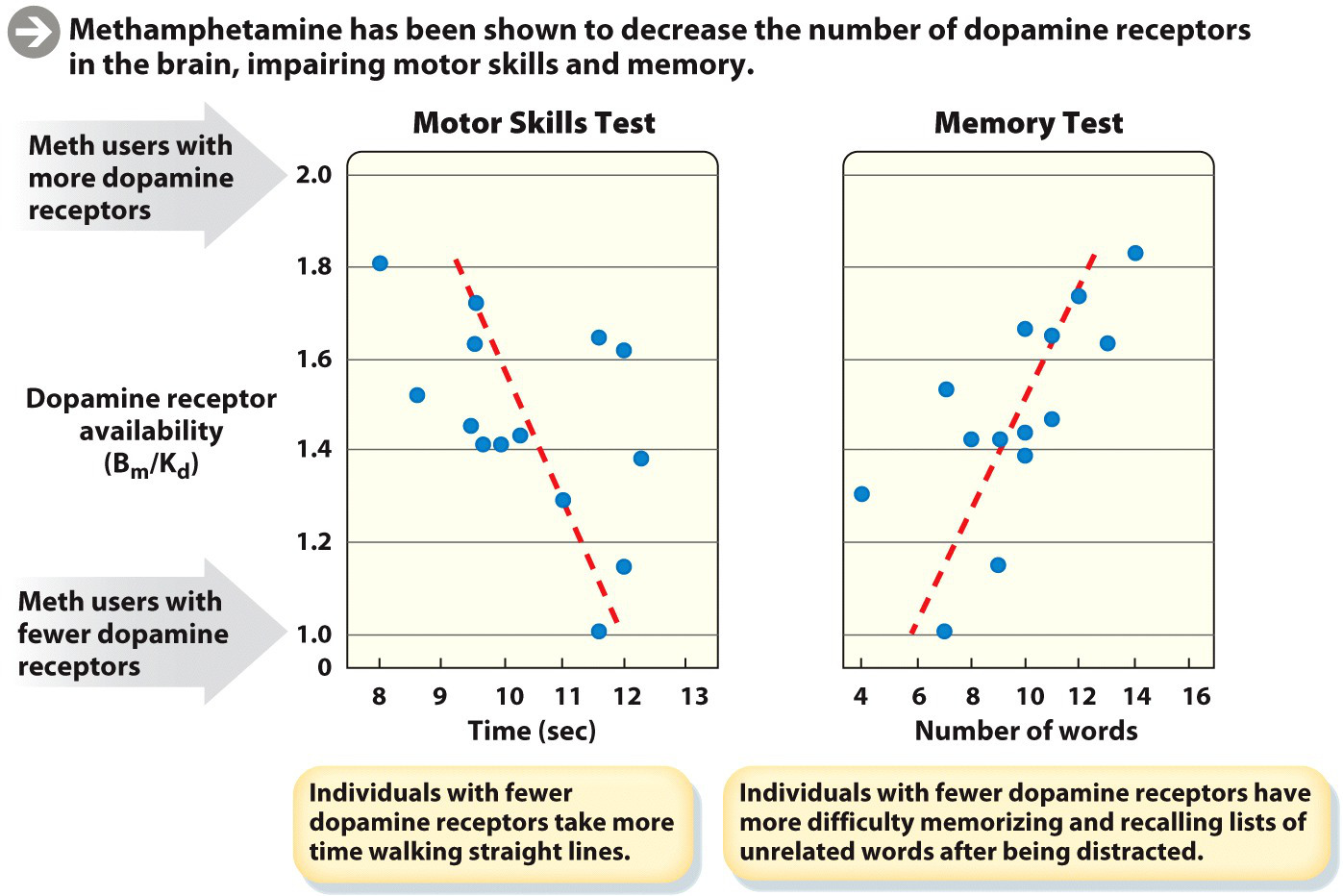BORN ADDICTS?
Not everyone who takes drugs becomes addicted. Exactly why some people seem to be more at risk than others isn’t clear. But researchers have a few hypotheses based on existing evidence. For some of us, it may be a matter of biology: a predisposition to addiction caused by a shortage of dopamine or other types of receptors. Some people may just have been born with fewer receptors, or their brains may have lost receptors over time because of difficult life experiences. Consequently, drugs provide these people a high that they can’t get from any other stimulus. And the drug feels too good to stop.
And just as some of us may be biologically predisposed to addiction, others may be predisposed to avoid it: some people’s brains may simply be better at overriding the pleasure-seeking impulse.
A 2011 study by researchers at the Scripps Research Institute Florida, for example, identified a brain pathway involved in nicotine addiction. The researchers found that the number of a nicotine receptor called alpha-5 influences how susceptible mice are to nicotine addiction. When given the opportunity to self-administer nicotine, normal mice will stop after reaching a certain dose. Mice with no alpha-5 receptors, however, won’t stop until they’ve taken a much higher dose. Humans also have alpha-5 receptors in varying numbers, and scientists hypothesize that people with fewer receptors are less sensitive to nicotine and may become more easily addicted.
Regardless of the reason people become addicted, addiction is a serious public health problem. Tobacco, for example, is responsible in some way for one out of every five deaths in the United States, according to NIDA. Smokers have a higher incidence of both heart and lung disease. And smoking causes cancer. Tobacco use is the leading preventable cause of death and disease in the United States, killing some 440,000 people a year.
656
Drug use also affects health in ways that diminish the quality of life. For example, deficits in the dopamine system caused by drug use weaken memory and motor skills. Nora Volkow, head of NIDA, has shown that methamphetamine (crystal meth) users not only have fewer dopamine receptors than nonusers, they also have poorer short-term memory and score much lower on tests of motor skills, such as quickly walking a straight line (INFOGRAPHIC 29.8).
